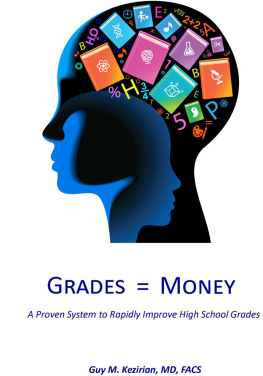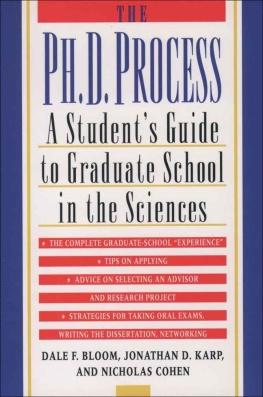Dave Mumby - Graduate School: Winning Strategies For Getting In
Here you can read online Dave Mumby - Graduate School: Winning Strategies For Getting In full text of the book (entire story) in english for free. Download pdf and epub, get meaning, cover and reviews about this ebook. year: 2011, publisher: Dave Mumby, Ph.D., genre: Religion. Description of the work, (preface) as well as reviews are available. Best literature library LitArk.com created for fans of good reading and offers a wide selection of genres:
Romance novel
Science fiction
Adventure
Detective
Science
History
Home and family
Prose
Art
Politics
Computer
Non-fiction
Religion
Business
Children
Humor
Choose a favorite category and find really read worthwhile books. Enjoy immersion in the world of imagination, feel the emotions of the characters or learn something new for yourself, make an fascinating discovery.
- Book:Graduate School: Winning Strategies For Getting In
- Author:
- Publisher:Dave Mumby, Ph.D.
- Genre:
- Year:2011
- Rating:3 / 5
- Favourites:Add to favourites
- Your mark:
Graduate School: Winning Strategies For Getting In: summary, description and annotation
We offer to read an annotation, description, summary or preface (depends on what the author of the book "Graduate School: Winning Strategies For Getting In" wrote himself). If you haven't found the necessary information about the book — write in the comments, we will try to find it.
This book provides college students with all the information and advice they need to apply successfully to graduate school. In chapters 1 4 several misconceptions about graduate school are revealed and dispelled, including the most common myth that one must have excellent grades to get in, and that excellent grades are all that one needs. Certain factors that can play an even bigger role than GPA in determining the fate of an application are discussed, and the reader discovers how the process of selecting applicants actually works in most graduate programs; it is not the way that most people think! Students with outstanding grades will discover why they need more than just their grades to get into grad school and succeed once there. These other requirements are explained, along with numerous tips and suggestions for making sure that one has it all when it comes time to apply.
Chapters 5, 6 and 7 go step-by-step through all stages of the application process, focusing on ways to maximize the quality of each of the five main components of a graduate school application: 1) application forms, 2) transcripts, 3) letters of recommendation, 4) standardized tests, and 5) the personal statement. Pitfalls of the application process are revealed, and the reader is shown how to avoid many of the costly mistakes that most graduate-school applicants unwittingly make.
The later chapters, beginning with chapter 8, discuss how to go beyond the basic application requirements and take extra steps to stand apart from the crowd. Included are such topics as making pre-application contact with a prospective supervisor, writing proper cover letters, and preparing for interviews. Many of the ideas outlined in these chapters do not occur to most students, but those who understand and incorporate them into a strategy for applying to graduate school are almost always successful. The final chapter examines ways that students may find the money they need for graduate school.
Intended for students in most disciplines within the Natural Sciences, Social Sciences, and Humanities, the book also contains valuable insight and advice for students of Engineering, or Fine Arts, and for those seeking a degree in Business, Law, or Medicine. The author is a university professor whose advice has helped hundreds of students get into graduate school. Research for the book included surveys and interviews with Admissions Committees and Faculty members of graduate programs across North America.
Dave Mumby: author's other books
Who wrote Graduate School: Winning Strategies For Getting In? Find out the surname, the name of the author of the book and a list of all author's works by series.

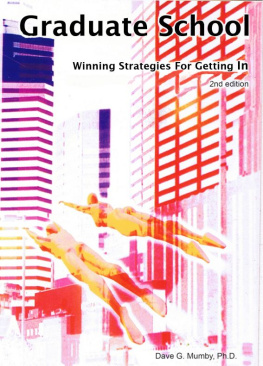


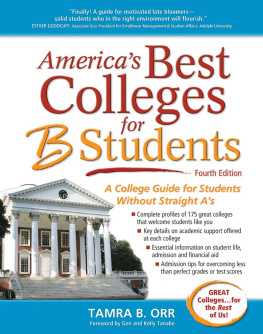
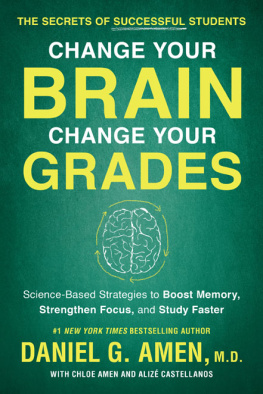
![Reding - Grads Guide to Graduate Admissions Essays] : Examples from Real Students Who Got into Top Schools](/uploads/posts/book/101661/thumbs/reding-grad-s-guide-to-graduate-admissions.jpg)
